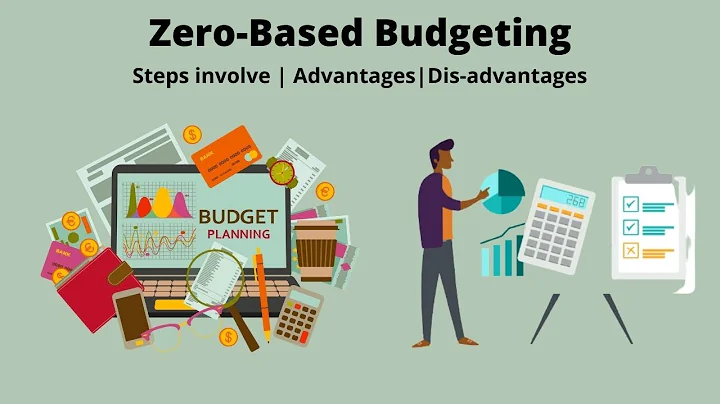What is an advantage of a zero-based budget?
The major advantages of zero-based budgeting are flexible budgets, focused operations, lower costs, and more disciplined execution.
Which of the following is an advantage of zero-based budgeting? Zero-based budgeting forces managers to justify each dollar in the budget to ensure that some expenses are lower in a current year compared to what they were in previous years.
Zero-based budgeting (ZBB) is a budgeting technique in which all expenses must be justified for a new period or year starting from zero, versus starting with the previous budget and adjusting it as needed.
Key Challenges of the Zero-Based Approach
Time crunch: The time needed to prepare zero-based budgets may increase stress on an already-loaded team. Skill gaps: Accounting and finance department experience may be limited and require additional ramp up time during its first year in use.
Zero-based budgeting helps more money to flow to stockholders than into unused departments, over-funded programs, and wasteful spending habits.
Zero-Based Budget. Zero-based budgeting (ZBB) is a method of budgeting in which all expenses must be justified for each new period. Zero-based budgeting starts from a "zero base," and every function within an organization is analyzed for its needs and costs.
Advantages include efficiency, accuracy, and reducing budget inflation. Disadvantages include high manpower turnover and being time-consuming. It was adopted in India in 1983 by the Department of Science and Technology.
Advantages of a budget
With an accurate budget, you'll be able to cut out unnecessary expenses and save money, or stop running up big debts. If you already have debt problems, a budget will show you how much spare cash you have.
Instead of spending $10,000 in this example of zero-based budgeting, you only need to spend $3,000. You would mark $3,000 for advertisem*nts. And, you find out you can get a better rate from a different office supplier, saving you $500. Instead of $1,500, your supplies will now only cost you $1,000.
Zero Maintenance is a strategy that can remove boundaries set by traditional IT management. It enables applications and systems to achieve and sustain near-zero spend, and transforms the traditional maintenance practices from “Fail and Fix” to “Predict and Prevent” and ultimately to a “Fail Proof” state.
What does zero-based budgeting overcome the weakness of?
Budget inflation: Since every line item is to be justified, a zero-based budget overcomes the weakness of incremental budgeting of budget inflation. Coordination and Communication: It also improves coordination and communication within the department and motivates employees by involving them in decision-making.
Zero-based budgeting is when your income minus your expenses equals zero. Perfect name, right? So, if you make $5,000 a month, everything you give, save or spend should add up to $5,000. Every dollar that comes in has a purpose, a job, a goal.

The disadvantages of zero-based budgeting include the possibilities of resource intensiveness, being manipulated by savvy managers, and bias toward short-term planning.
A zero-based budget is a budgeting method in which every dollar of income is allocated for a specific purpose. This budgeting approach involves starting from scratch and allocating every dollar of income each month, rather than using the previous budget as a baseline.
Another common budgeting technique is incremental budgeting, which is the opposite of ZBB. Incremental budgeting is a method of creating a budget based on the previous period's budget, with some adjustments for inflation, growth, or other factors.
Disadvantage is an antonym of advantage. As nouns the difference between disadvantage and advantage is that disadvantage is a weakness or undesirable characteristic; a con while advantage is any condition, circ*mstance, opportunity or means, particularly favorable to success, or to any desired end.
Zero-based budgeting means budgeting by justifying and approving all expenses for each accounting period, rather than basing it on your past spending. By starting from a 'zero base' at the beginning of each budget, you can create a really effective process for analysing and deciding where to allocate your funds.
adjective. Also zero-based . without reference to a base figure or to previous practice; according to present needs only, as opposed to a percentage increase or decrease of previous figures: zero-base planning; zero-base inventory.
As an accounting practice, zero-based budgeting offers a number of advantages including focused operations, lower costs, budget flexibility, and strategic execution. When managers think about how each dollar is spent, the highest revenue-generating operations come into greater focus.
It allows managers to plan ahead, allocate resources effectively, and improve communication and coordination. However, it's important to be aware of the potential drawbacks, such as inflexibility, time-consumption, conflict, and unrealistic targets.
What are the advantages of ZBB?
One advantage of zero-based budgeting (ZBB) is that it boosts the flexibility of your finance team. Budget administrators must begin from scratch and defend their resource needs during each budgeting cycle, which is invaluable during periods of economic uncertainty.
Meanwhile, a report recently cited in the Wall Street Journal notes that about 300 large global companies in a broad range of industries are now using ZBB.
The advantage of zero-based budgeting over conventional budgeting is that it is more accurate and considered superior over conventional budgeting. The disadvantage is that it is more time consuming and requires greater managerial resources. Don't know?
Traditional budgeting is based on historical information, which revolves around accounting. Zero-based budgeting is based on estimated data, and that's why it revolves around decision-making. Traditional budgeting encourages similar costing to the previous year. Zero-based budgeting supports cost-effectiveness.
The 50-30-20 rule recommends putting 50% of your money toward needs, 30% toward wants, and 20% toward savings. The savings category also includes money you will need to realize your future goals. Let's take a closer look at each category.